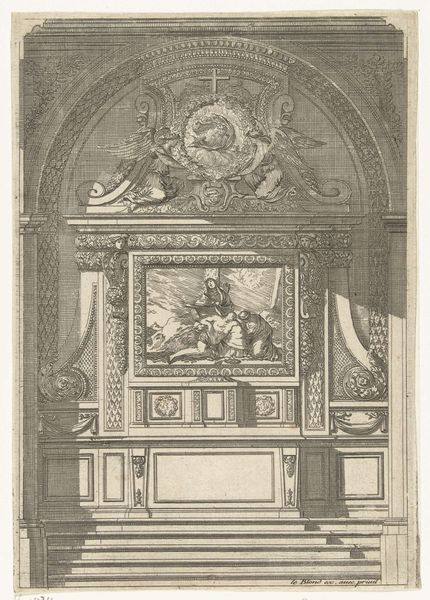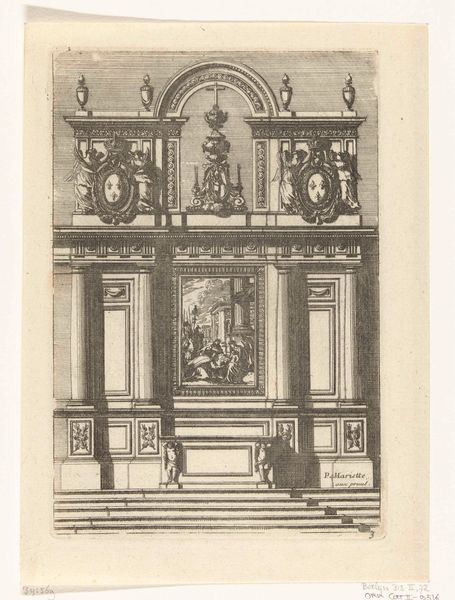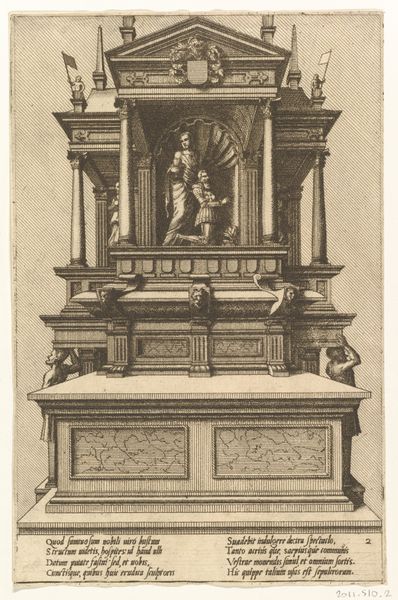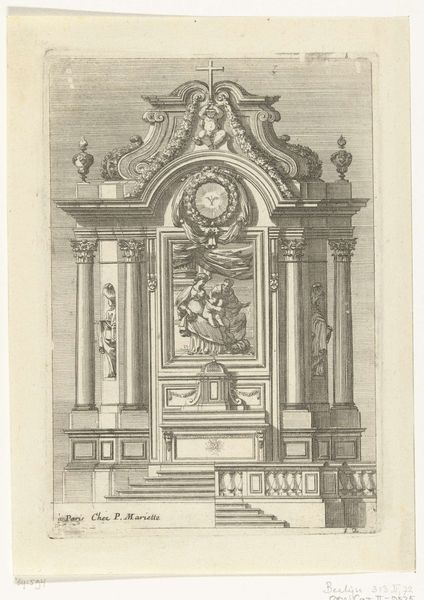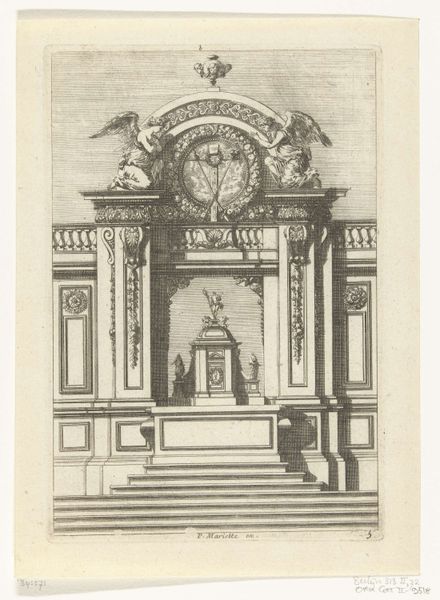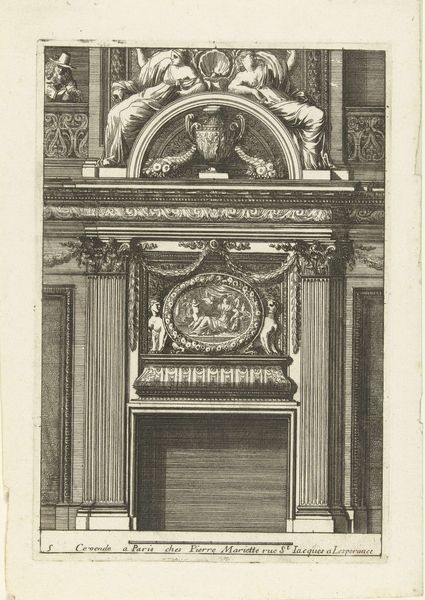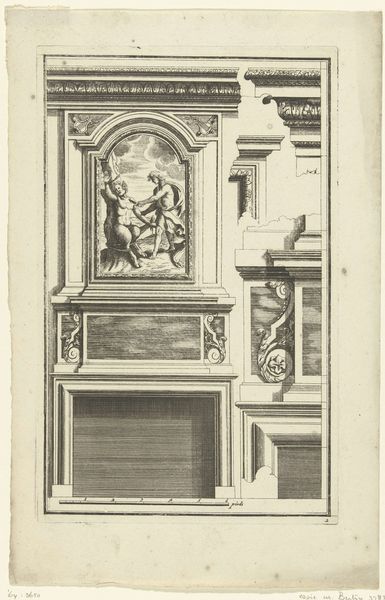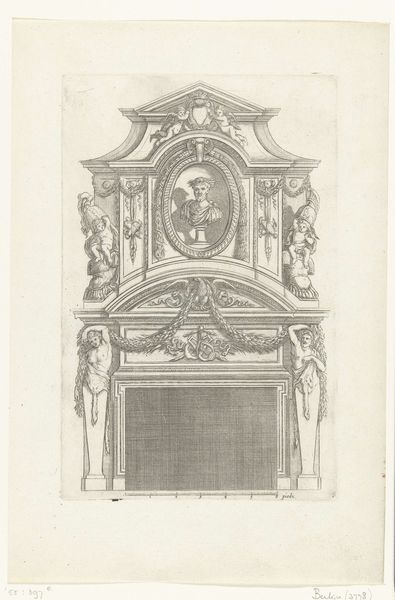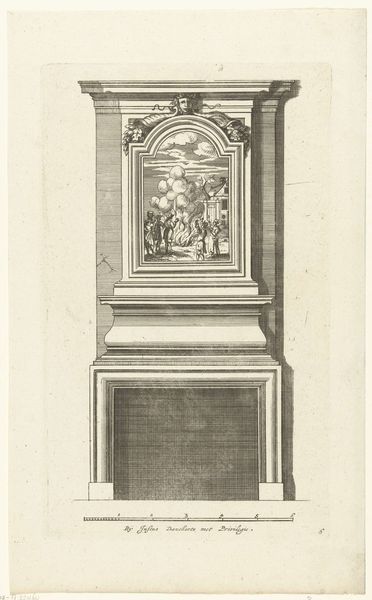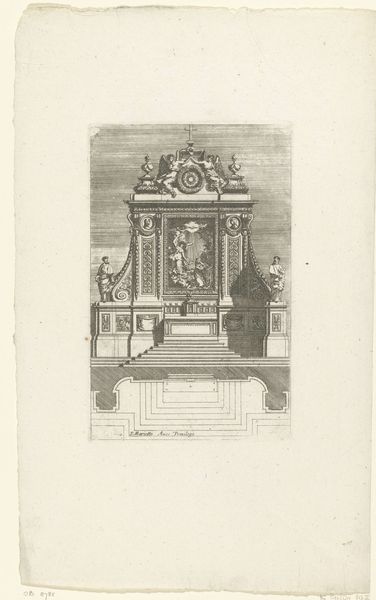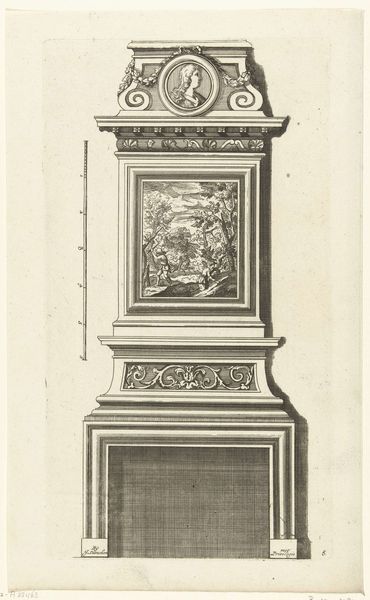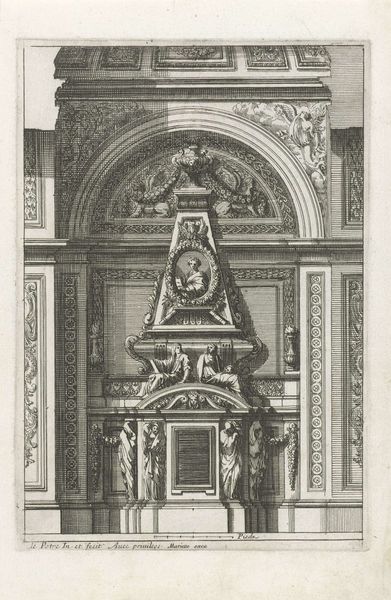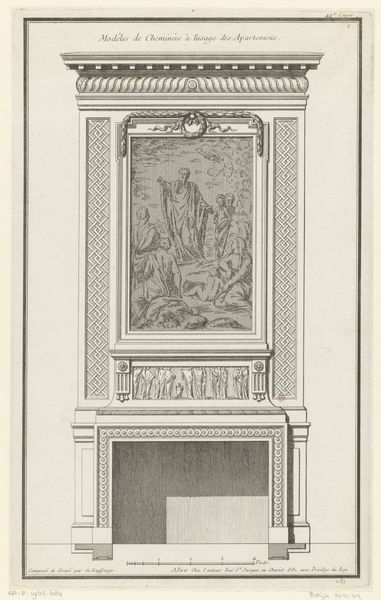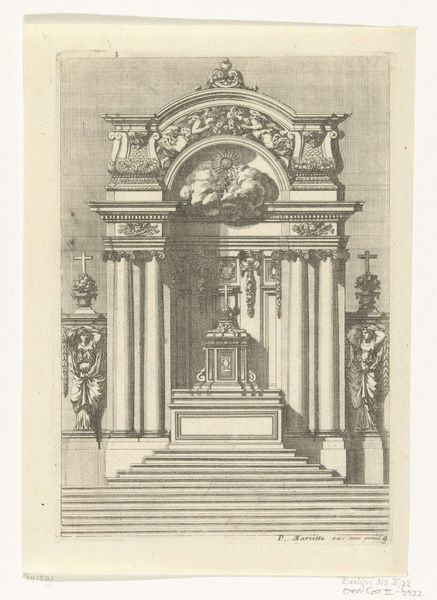
print, engraving
#
baroque
# print
#
pencil sketch
#
old engraving style
#
figuration
#
form
#
line
#
history-painting
#
engraving
Dimensions: height 196 mm, width 132 mm
Copyright: Rijks Museum: Open Domain
Editor: So, this engraving, "Tabernacle with the Lamentation of Christ," made by Jean Lepautre between 1666 and 1693… It feels so architectural, almost like a stage. The print *shows* a stage. What strikes me is the way the artist combines the drama of the Lamentation with the rigid structure of the tabernacle itself. What do you make of it? Curator: The visual language here is fascinating. It’s an engraving *of* an engraving, or an architectural drawing of one, that itself contains an image dense with Christian symbolism. Consider the arch above—the cross, the cherubs—they frame the scene of mourning below, adding layers of meaning to the depicted suffering. Editor: So, the tabernacle itself acts as a kind of… symbolic container for the emotional content of the Lamentation? Curator: Precisely. But Lepautre’s choice to render it as a print, an easily reproducible image, also speaks to how grief, particularly religious grief, circulates within a culture. Each element serves as a mnemonic device. Look at the empty altar front. What does it remind us of? Editor: That feels like a space for contemplation, a place for personal mourning or reflection inspired by the biblical scene. It prompts a response. Curator: Indeed. The cultural memory of the Passion is continuously reactivated through these visual symbols. Consider how the very act of recreating or reinterpreting traditional symbols affects their psychological power. Editor: That's powerful. It's interesting to think of how even the most rigid structures, like this tabernacle, can be vehicles for such intense emotion. Curator: Yes, visual culture enables a shared emotional understanding which both reinforces shared social experiences and helps build personal meaning. I notice more each time I see this image.
Comments
No comments
Be the first to comment and join the conversation on the ultimate creative platform.
